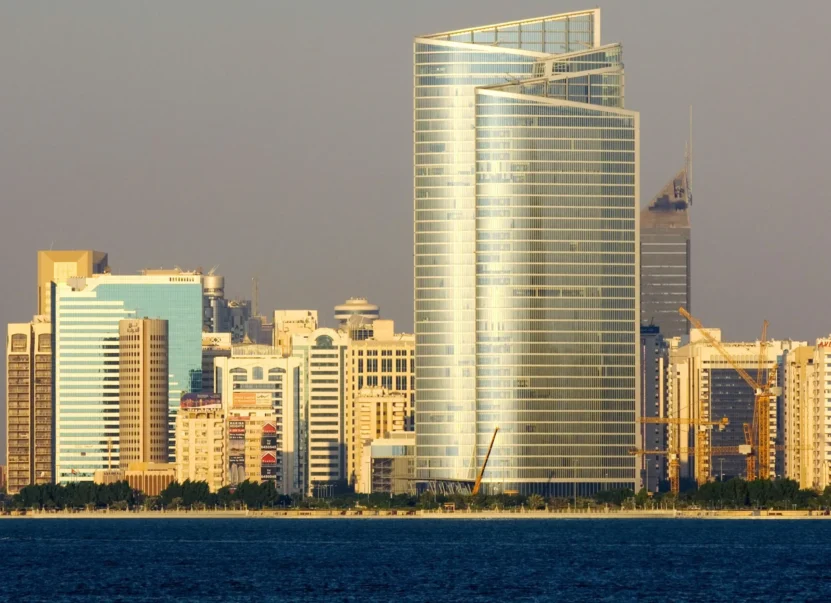In 2025, the global map of financial growth is no longer dominated by a handful of traditional centers. Strategic investment planning has evolved into a distributed ecosystem — where innovation, tax efficiency, and cross-border accessibility define the most attractive markets. The concrete answer today is that cities like Dubai, Singapore, London, Zurich, and New York lead as the most powerful hubs for international wealth expansion, not just for their financial infrastructure but for how they align investment planning with global mobility, digital assets, and sovereign stability.
1. Dubai – The Epicenter of Modern Wealth Structuring

Dubai has transformed from a trade hub into one of the world’s most sophisticated financial ecosystems. Its success lies in combining a zero-income-tax regime with investor residency programs and high-end financial services. The city’s financial free zones, notably the Dubai International Financial Centre (DIFC), provide an English common-law framework that attracts global investors who prioritize security and transparency.
Beyond traditional banking, Dubai offers robust infrastructure for family offices, succession planning, and cross-border asset protection. The government’s commitment to digital transformation also enables investors to access real-time data for portfolio analysis, risk modeling, and diversification.
For those seeking expert guidance in portfolio structuring, estate management, and global asset protection, there are numerous wealth management companies in Dubai that offer comprehensive advisory services tailored to international investors. They bridge traditional investment vehicles with emerging opportunities in sustainable finance and digital assets.
2. Singapore – The Asia-Pacific Gateway for Financial Stability

Singapore remains the most disciplined financial hub in Asia, known for its political neutrality, strong legal system, and double-taxation treaties with over 80 countries. Its Monetary Authority of Singapore (MAS) enforces strict compliance standards, ensuring that global investors can operate safely and predictably.
The city-state’s rise as a center for private banking, venture capital, and ESG-focused investment is no coincidence. Family offices have multiplied since 2018, largely due to Singapore’s variable capital company (VCC) structure, which streamlines fund management. Investors seeking exposure to Asian equities, technology ventures, or sustainable infrastructure find Singapore’s transparent tax environment and capital mobility unmatched.
In strategic terms, Singapore represents stability in a region marked by volatility. Its balance between regulation and innovation makes it an ideal base for multinational investors planning 10- to 20-year wealth preservation strategies.
3. London – Legacy Meets Innovation
Despite post-Brexit challenges, London continues to dominate European financial activity. The city offers a dense concentration of investment banks, hedge funds, private equity firms, and fintech innovators. Its global time-zone advantage — overlapping Asian and American trading hours — gives it unmatched liquidity access.
The UK government’s policies on fintech licensing, digital assets, and green finance keep London relevant. Meanwhile, the strength of institutions like the Bank of England and the London Stock Exchange reinforces investor confidence. The city’s universities, think tanks, and legal infrastructure provide intellectual depth, enabling businesses to plan beyond short-term financial gains and focus on strategic expansion.
For high-net-worth individuals, London remains a core base for asset allocation, private equity deals, and philanthropic portfolio development. Even with rising taxes, the city’s global network effect continues to make it indispensable in long-term investment planning.
4. Zurich – The Benchmark for Private Banking

Zurich’s reputation as a private banking stronghold dates back more than a century. What has changed is how Swiss banks now align traditional discretion with 21st-century transparency requirements. The result is a sophisticated environment for structured investments, particularly in wealth preservation, commodities, and fixed-income instruments.
Switzerland’s regulatory consistency and neutral stance make it ideal for investors who value confidentiality without compromising compliance. The city also leads in sustainable investment products, green bonds, and ESG-oriented funds. Zurich’s strategic proximity to EU and EFTA markets allows investors to diversify regionally without being exposed to the regulatory flux of the European Union.
In an era where data privacy and asset security are increasingly important, Zurich provides a level of legal protection few other markets can replicate. Investors use it not only as a saven but as a springboard for long-term intergenerational planning.
5. New York – The Nucleus of Global Capital
New York City remains the heartbeat of global finance. Wall Street’s influence extends far beyond equities; it defines global pricing for commodities, derivatives, and currencies. The city is home to the largest number of hedge funds and investment banks worldwide, making it essential for liquidity, deal-making, and strategic mergers.
Regulation in the United States is complex but predictable, giving institutional investors confidence in governance. The Securities and Exchange Commission (SEC) enforces transparency, which supports robust investor protection frameworks. For those focused on venture capital or private equity, New York offers access to an unmatched pipeline of startups and technology funds.
Beyond Wall Street, the rise of financial technology firms in Brooklyn and Manhattan has transformed how investment portfolios are managed. Automation, AI-driven trading, and tokenized assets are now integrated into mainstream wealth management — redefining what strategic growth means in modern finance.
6. Hong Kong – Reinventing Its Financial Identity

Hong Kong’s position has shifted but not diminished. Despite geopolitical pressures, it continues to act as a crucial link between Chinese capital and international markets. The city’s dual advantage — proximity to mainland China and access to global financial systems — makes it a unique platform for portfolio diversification in Asia.
Investors use Hong Kong as a bridge for equity listings, yuan-denominated investments, and alternative financing channels. The government’s fintech initiatives, such as digital banking licenses, have also revitalized its financial ecosystem. For global funds seeking exposure to China’s evolving markets while maintaining offshore safety, Hong Kong remains a relevant strategic point.
However, investors increasingly balance Hong Kong portfolios with holdings in Singapore and Dubai to mitigate regional risk, ensuring flexibility if regulations shift.
7. Luxembourg – The Silent Powerhouse of EU Funds
Luxembourg has quietly become Europe’s most powerful hub for investment funds and cross-border asset management. The Grand Duchy is home to more than 60% of Europe’s private funds, supported by strong investor protection and efficient legal structures.
Its Specialized Investment Fund (SIF) and Reserved Alternative Investment Fund (RAIF) models are popular among institutional investors due to their flexibility and low administrative barriers. In addition, Luxembourg’s multilingual financial workforce and its central location in Europe make it ideal for international fund domiciliation.
For family offices and corporations, Luxembourg represents the administrative heart of European capital. Its tax framework and consistent legal environment allow investors to plan cross-border mergers, acquisitions, and long-term capital deployment.
8. Toronto – North America’s Stable Growth Market

Toronto has become a magnet for investors looking for exposure to North American stability without the volatility of U.S. markets. Canada’s regulatory framework encourages sustainability-driven investment, and Toronto’s financial district has evolved into a fintech and asset management center serving both institutional and private investors.
The city’s growing immigrant entrepreneur base fuels startup ecosystems, while the Toronto Stock Exchange (TSX) remains one of the largest globally by market capitalization. For ESG and impact-focused funds, Canada’s emphasis on renewable energy and social governance makes Toronto particularly attractive.
In long-term strategic planning, Toronto’s moderate tax regime and strong legal protection make it a safe zone for both corporate treasury management and individual wealth diversification.
9. Abu Dhabi – Sovereign Scale and Institutional Strength

Abu Dhabi complements Dubai’s private wealth focus with its sovereign-level investment approach. Through the Abu Dhabi Investment Authority (ADIA) and Mubadala, the emirate channels global capital into infrastructure, renewable energy, and tech sectors.
For strategic planners, Abu Dhabi represents stability through state-backed diversification. Its newer financial zone, ADGM (Abu Dhabi Global Market), mirrors DIFC’s structure but with a stronger institutional focus. The city’s emphasis on green finance and regional sustainability projects signals a broader strategic vision — positioning it as the Gulf’s long-term capital anchor.
10. New Frontiers – Emerging Strategic Alternatives
While established hubs dominate, emerging cities like Riyadh, Dublin, and Tallinn are rapidly building reputations in fintech, asset management, and crypto-regulation. Their lower barriers to entry and adaptive policy frameworks make them attractive secondary bases for agile investors.
Riyadh’s Vision 2030 reforms aim to turn Saudi Arabia into a central player in Middle Eastern finance. Dublin offers EU market access with English-speaking infrastructure. Tallinn, Estonia, represents the future of digital investment citizenship, pioneering e-residency and blockchain-based governance.
These emerging hubs indicate that strategic financial growth in 2025 is no longer about physical proximity to Wall Street or Canary Wharf — it’s about jurisdictional advantage and access to high-performing, low-regulation capital environments.
Final Perspective
Global wealth and investment planning in 2025 is about synergy — not isolation. The most successful investors diversify across regions where regulation, taxation, and digital infrastructure align. Dubai stands out as the most complete ecosystem for cross-border wealth management and tax efficiency, supported by world-class financial institutions and governance stability.
Meanwhile, traditional giants like London, Zurich, and New York remain pillars of credibility and liquidity, while Asia-Pacific leaders like Singapore and Hong Kong continue to shape investment innovation. In this interconnected landscape, the true advantage lies in understanding how each hub complements the others — transforming global wealth into sustainable, strategic growth.
Related Posts:
- Real Estate Investment on Nusa Penida - Risks and…
- Smart Financial Strategies Every Growing Company…
- Winter Pond Care - Preventing Algae Growth in Cold Weather
- How Marketing Drives Brand Growth from Obscurity to…
- Revenue Growth Hacks for Small Businesses ─ Quick…
- Top 9 Trade School Careers That Will Pay Off (And…








